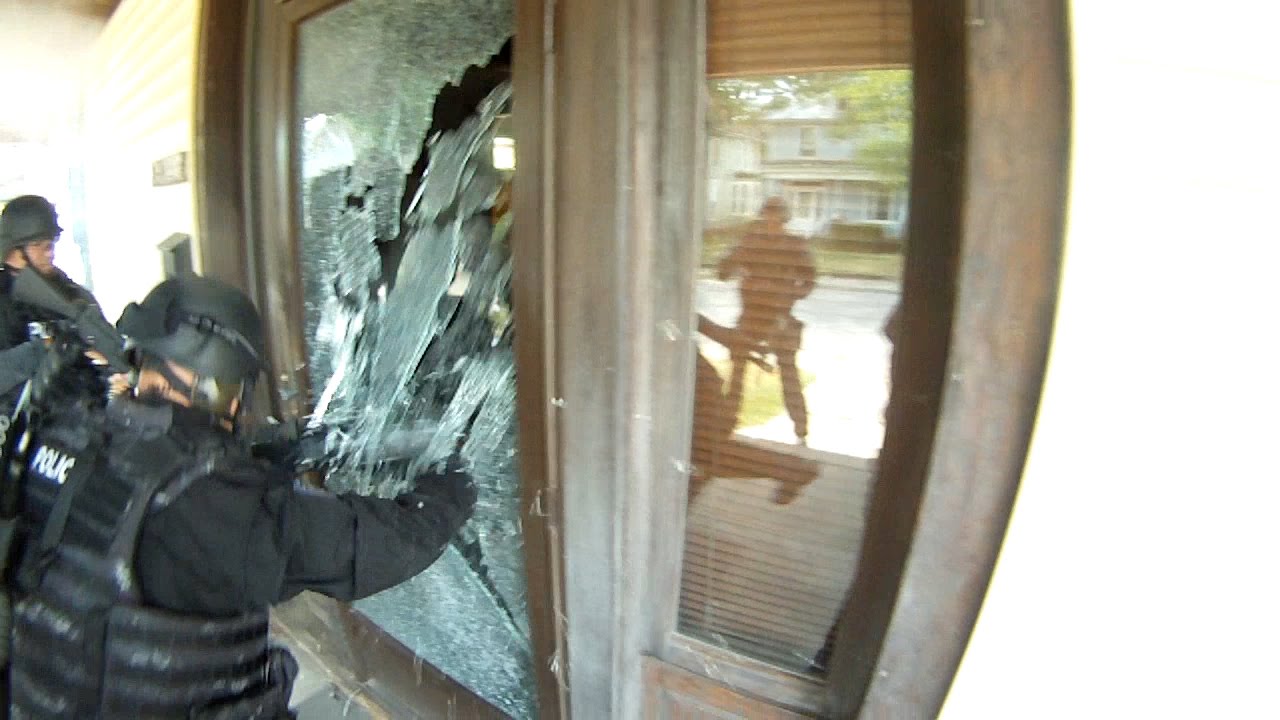Anyone who pays attention to cases involving police shootings, especially those that result in a fatality, has noticed that the narrative we first hear coming from the press soon changes. It is no different in the case of Atatiana Jefferson, who was gunned down through a closed window in her home on October 12, after a neighbor called police to report that her front door was ajar at 2AM. Fort Worth police showed up for a “wellness check.” They didn’t bother knocking, instead deciding to pull their guns and lurk around the outside of the house with high-lumen flashlights. Officer Aaron Dean and his partner opened a gate to the backyard, entered, and noticed a silhouette in the window that turned out to be Jefferson. He never identified himself as a police officer, yelled “show me your hands,” and a split second later fired the fatal shot.
On Monday, 10/14/19, the Fort Worth PD announced that Dean had resigned from the police force before they could terminate his employment. The same day the report came that FWPD had filed murder charges against Dean. He was arrested, and soon after made the $200,000 bond.
When the arrest warrant affidavit was released to the public, it was alleged that Jefferson’s un-named 8-year-old nephew, who was playing video games with her, claimed that Atatiana had noticed people lurking outside, picked up her gun and pointed it at the window. Granted, until an investigation is done, facts such as these are not expected to come out (not that it exonerates the officer). On Thursday, the 17th, the narrative surrounding the initial call to police was changed from that of a “wellness check,” to one of a “potential burglary.” Once again, anyone who has examined cases as such recognizes that this is often done in officer-involved shootings.
The subject here should not be what the original intent of the call to law enforcement was made for, but whether a “mundane” has a right to protect their home from a “protected class member,” especially one who failed to identify himself as such. That there are people willing to defend the actions of officer Dean should come as no surprise. But is there a precedent for defending your home from officers who do not announce themselves?
Ray Rosas
On February 19, 2015, a Corpus Christi SWAT team led a “no-knock warrant” assault on the home of Ray Rosas. They had a search warrant and were looking to arrest his nephew, Santiago Garcia, who they suspected of selling drugs. Garcia was not in the home at the time. One would think that simple surveillance of the property could’ve informed police of this. Or they could’ve knocked and asked if he was in the dwelling. But no, Rosas suffered the typical, cowboy-type SWAT raid that police, on average do 50,000 times a year. When you compare that to 800 per annum in the 1980s, one should ask, why?
The team threw a flash-bang grenade into the bedroom of the Rosas home, which was followed by three cops entering without announcing that they were, in fact, law enforcement.
Rosas, whose home had been shot at in the past during drive-by shootings, believed he was being robbed, so he pulled out his gun and fired 15 times, striking three officers, all of whom survived the shooting.
Rosas was arrested on attempted capital murder which, if convicted, carried a sentence of life in prison. During the trial, those charges were reduced to three counts of aggravated assault on a “public official.” Prosecutors argued that he should’ve known they were police because he had a surveillance camera outside his home.
But Rosas had always maintained he did not know they were cops, telling cops as he was being arrested that he did not know they were cops. He also told jailers the same thing that night as they were booking him.
After almost two years in jail, awaiting, and during his trial, the jury deliberated for only two hours and found him not guilty.
The surveillance camera footage that allegedly captured the raid, was never released to the public.
How the case of Ray Rosas relates to the shooting death by law enforcement of Atatiana Jefferson should be clear. In Rosas’ case, the police never announced who they were, threw an explosive device into his bedroom, and trespassed into his home. A Texas jury decided that the testimony of police was contradictory, and that Ray was defending his castle from what he thought were criminals.
In Ft. Worth, the police officers never announced who they were and prowled around the outside of Jefferson’s home with flashlights, entering her fenced-in backyard. At 2 AM, it is not unreasonable to believe that anyone who owns a firearm would’ve done the same. Many on social media have proclaimed they would have done the exact thing that Atatiana did. Yet, there are those who seek to make the inane argument that if Dean is held responsible for this murder, “Who Would Ever be a Cop?” That is a great question ignoring the shooting.
Using the precedent of the Rosas case, the conviction of Aaron Dean looks to be a slam dunk, although they differ in that the aggressor was unharmed and the peaceful inhabitant was slaughtered. The defense will no doubt rely on the Graham vs. Connor decision. Taking that into consideration, the prosecutor is now the one looking down the barrel.































